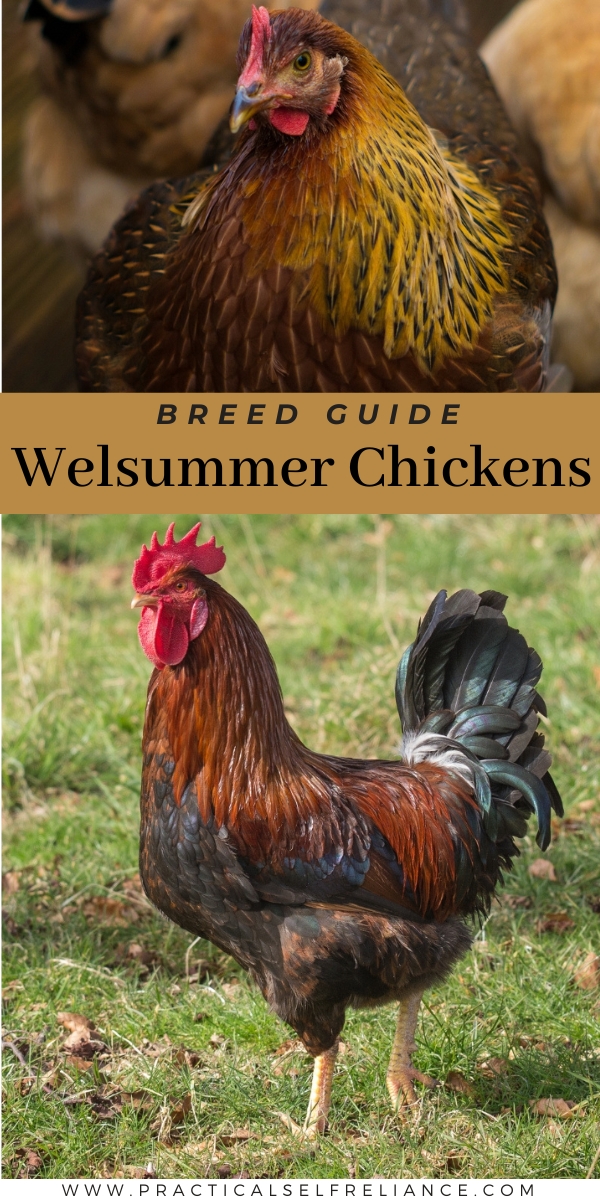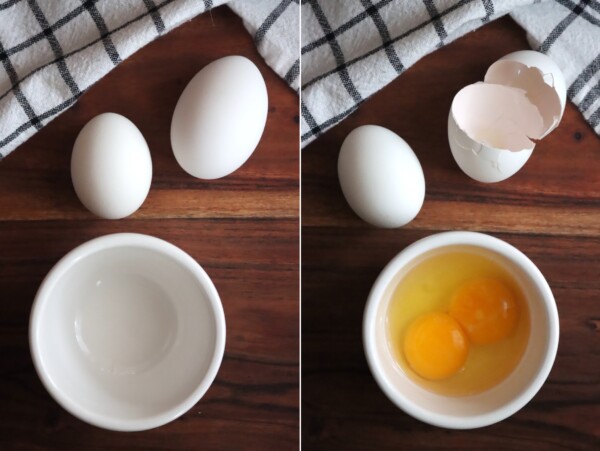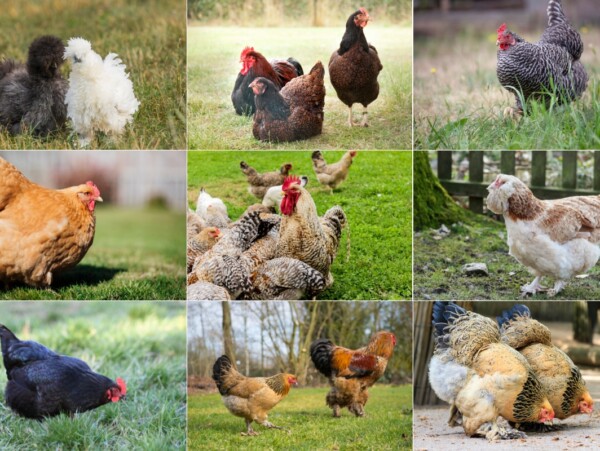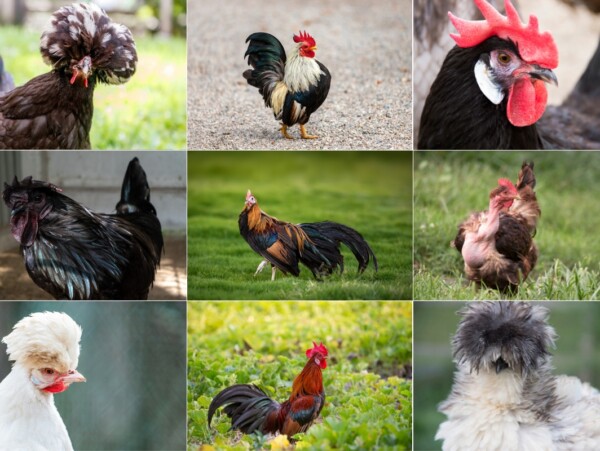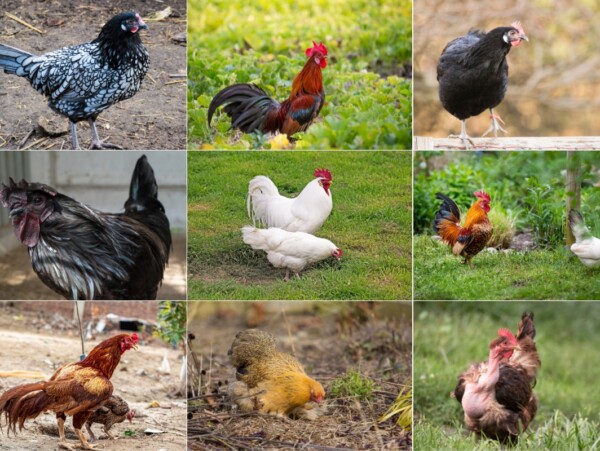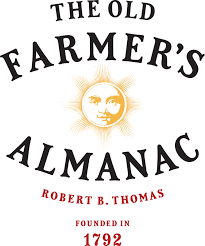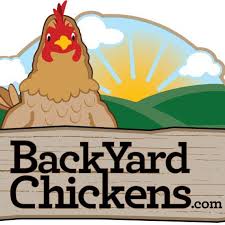Affiliate disclosure: This post may contain affiliate links. Please see our Privacy Policy.
Welsummer chickens are calm and friendly, and Not much ruffles these birds’ feathers! You’ll always know what your Welsummers are up to by their chatter. Dual-purpose, beautifully feathered, and lovely egg layers, there’s a lot to love about them!
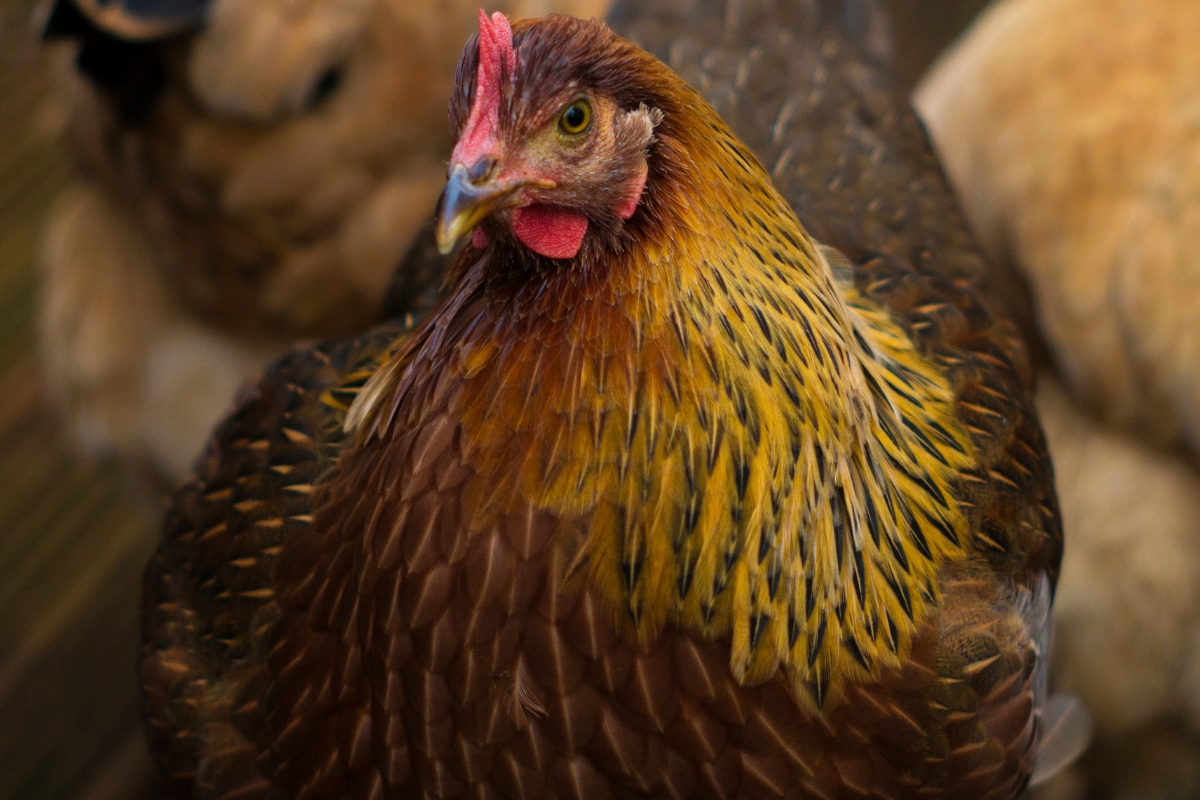
Welsummer chickens are at the top of our list for new chicken breeds to try, as we’re all about raising friendly, calm, dual-purpose birds.
These particular beauties have attractive feathers and lay dark brown eggs as well, so they’ll pretty up both your chicken yard and your egg basket.
What are Welsummer Chickens?
Originally bred in the Netherlands, the Welsummer is named after its hometown of Welsum. While it’s unclear when breeding began, best guess puts it at the end of the 19th century and beginning of the 20th. Numerous breeds are thought to have been crossed in its ancestry, with the native landraces of the Netherlands credited as the breed cornerstone.
Overall, they are a sturdy breed that stands upright and has a long, low back. Male chicks have yellow feathers with indistinct brown stripes while the females have darker heads with bold stripes. Both males and females will develop reddish-brown feathers as they grow into adulthood.
Welsummer Chicken Characteristics
Calm and docile, you wouldn’t mistake them for serene birds—when they’re upset, they get loud! Even when going about their day you’ll hear what they have to say from across the yard. Especially if they think you have treats. They enjoy attention, will happily eat from your hand, and will tolerate some handling. Little ones may need to be cautioned to not go overboard with affection when tending these birds.
Bringing hearty cold tolerance with them from the Netherlands, you don’t need to worry much about them in the winter. Darker months, though, do bring about a seasonal cease to egg laying. When they are in-season, you’ll love the large eggs from these birds! A dual-purpose breed, once they’re done growing males will weigh about 7 pounds and hens will weigh 6.
- Breed Name: Welsummers (Pronounced: WELL-SUM-MER)
- Breed Type: Continental
- Temperament: Calm and friendly
- Size: Medium to large
- Eggs Per Year: 160-180
- Egg Size: Large
- Egg Color: Reddish brown
- Lifespan: 6-9 years
- Time To Maturity: 21-24 weeks
Welsummer Breed Standard
Going for bold coloration, their feathers may be the first thing you notice about the roosters. Between their yellow legs and red combs, they have black, beetle green chests and reddish-brown heads. Both males and females have clean legs with four toes. Hens have golden brown heads that flow into dark brown bodies with feathers shafted in white or lighter brown.
Chicks in this breed are autosexing and come out of the shell with yellow feathers and brown patches. Females will have darker heads, sharply outlined eyes, and clear stripes on their backs. Males are much fuzzier patterned and have lighter-colored heads.
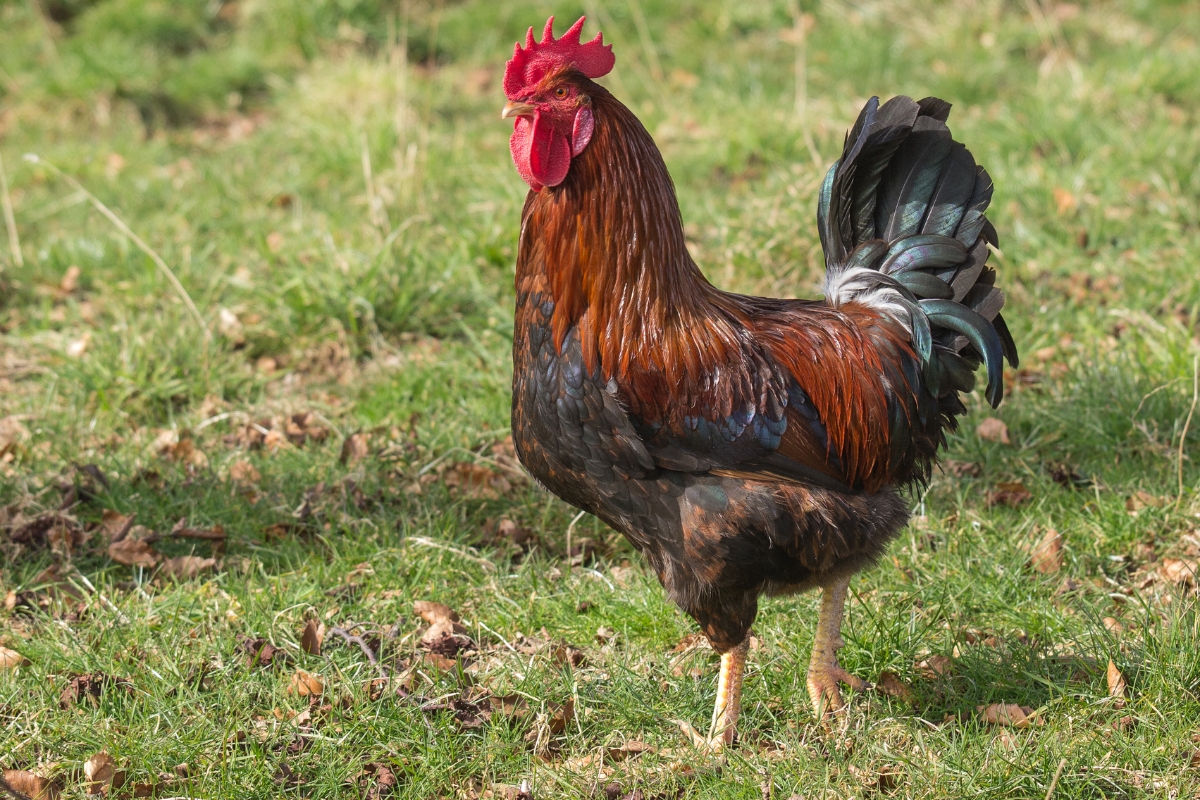
Temperament
Docile but ready to speak their minds, they make excellent backyard companions. They’re less ideal chickens if you have neighbors. You should be able to pick them up without any panicky, flighty behavior. But don’t overdo it or they may become less eager to see you each day.
Roosters in this breed are known to be polite and friendly. Backyard bullies they are not, but neither are they ideal protectors for your flock. They’ll choose to flee from threats before confronting them.
Hardiness
Cold weather is ideal for this breed and they’ll thrive in northern climates. If provided enough shade and cool water, you’ll find they’ll also handle heat tolerably.
Egg Production
Reports vary from owner to owner, saying they lay anywhere from 160 to 250 eggs per year. Some claims state the more eggs a Welsummer lays the less purebred the chicken. Going by the breed standard, and on average, you probably can expect closer to 160-180 eggs. But an individual chicken may surprise you with more!
Egg Color
Welsummers lay a rich brown egg. Shades vary from a deep reddish brown to more of a terra cotta color with occasional speckling. As the pigment is added at the end of the egg laying cycle, you could rub it off with your hands. Be careful while handling if you want to add dark eggs to your baskets!
Meat
It may take a few months after maturing for the Welsummer to reach full weight, but this slow pace of growth actually helps keep their meat flavorful. With deep, lean, breasts you won’t be disappointed if you want to add them to your table.
Broodiness
Sitting on nests is not an activity they enjoy and you won’t need to worry about broodiness. Rather, you should worry about finding another chicken to raise their chicks: Welsummers are neglectful mothers.
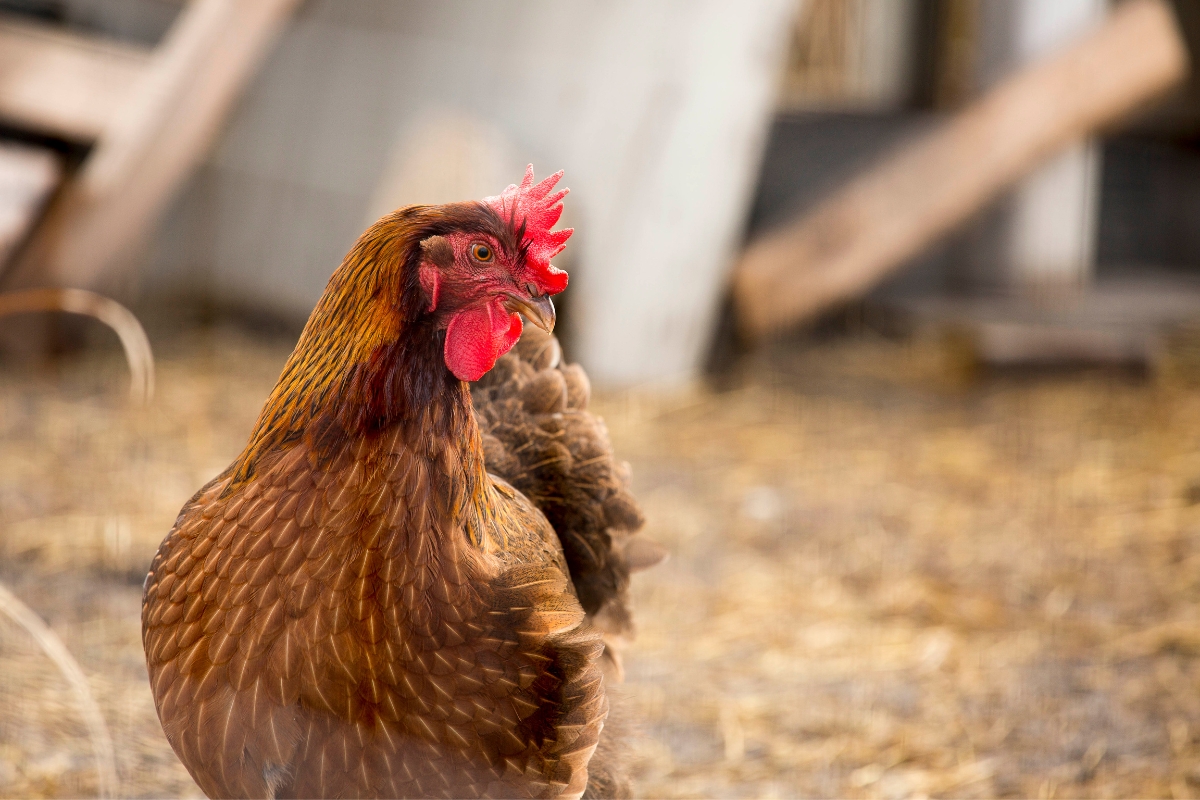
Foraging Ability
Getting out into the yard and scrounging for food is a favorite pastime of these birds! If encouraged, they can be mostly self-sufficient. However, if you don’t have the space for them to roam, they do tolerate confinement well.
Cross Breeds
Most original cross breeds are unclear and researchers have given it their best guess. These guesses include Malays, Partridge Cochins, Brahmas, Partridge Wyandottes, and Langshans.
After the breed became better known, they were crossed with Barnevelders, Partridge Leghorns, and Rhode Island Reds to stabilize and standardize them.
Common Health Issues
No specific health concerns hound Welsummers. As with all chickens with large combs and wattles, you’ll want to be cautious in winter for frostbite.
Pros and Cons of Welsummer Chickens
Pros:
- Beautiful dark brown eggs
- Friendly and calm
- Good foragers
- Cold hardy
- Tolerates confinement
- Plentiful eggs
Cons:
- Noisy
- Poor mothers
- Slow growers
Tips for Raising Welsummer Chickens
If allowing your Welsummers to roam, you should consider fencing their foraging space. Flying isn’t a skill of theirs, so while they won’t jump your fences. But they also won’t escape from predators easily. Along these lines, the roosters are mellow and won’t rush to defend the flock. Adding some fencing will help protect your flock while they’re out.
Because they enjoy foraging, if you plan to confine your birds, make sure to provide more space than generally advised for their run; eight feet square per bird will likely lead them to boredom and aggression.
During the winters, if the temperatures drop, consider using Vaseline to coat their combs and wattles. This will help prevent frostbite from injuring your birds.
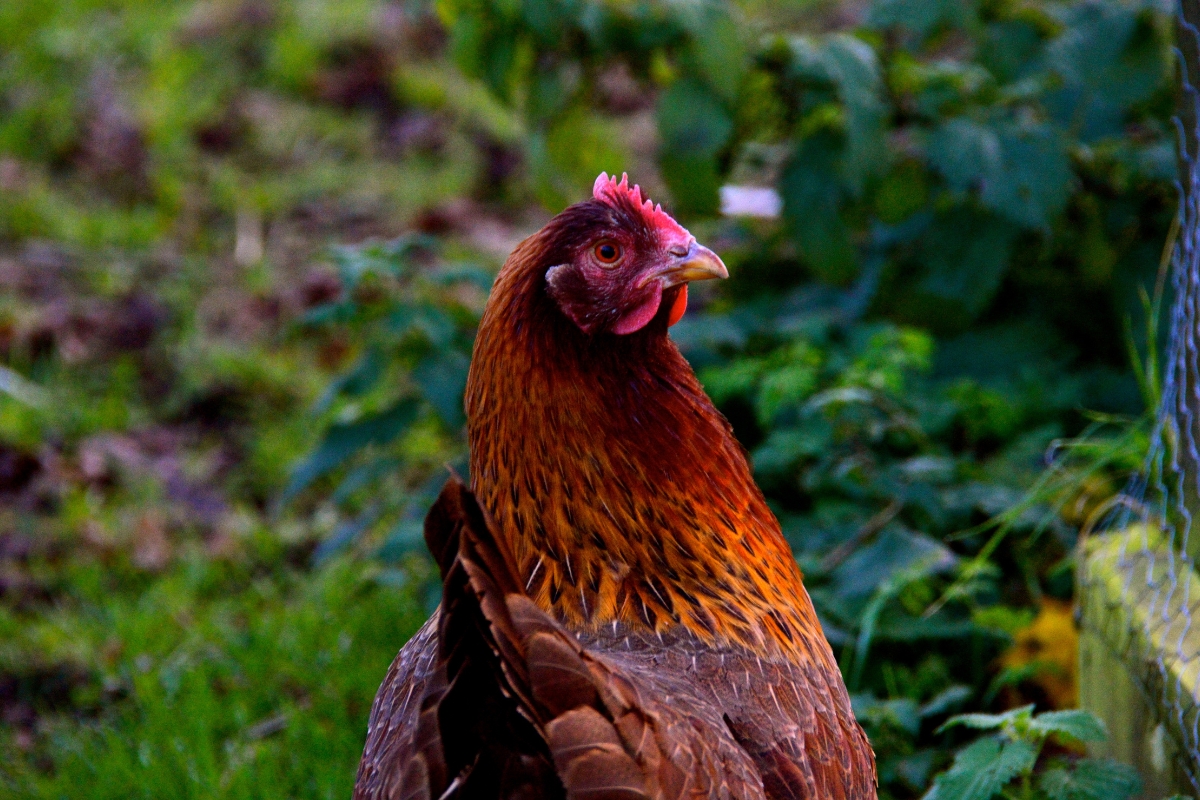
Welsummer Chicken FAQ
After all that info, if you need a quick recap, see below!
Yes! They will cheerfully eat treats from your hand and tag along to venture around the yard. While they don’t enjoy being handled, they won’t shy away from being picked up or pet.
They’ll reliably produce eggs for most of the year. During the winter months you can expect them to stop laying until the days begin to lengthen. Laying seasons will produce around 160-180 eggs total for the year.
A rich dark brown egg that will vary in hue from terra cotta to reddish brown. Some eggs will even come out speckled with darker brown flecks.
No, they are not. Neither are they good mothers, tending to neglect their babies. If you would like to raise chicks, expect to incubate them. Once hatched you will either need to tend the chicks yourself or, in mixed flocks, introduce them to a mother from another breed.
On the larger side, Welsummer roosters weigh in at about 7 pounds and hens at 6.
Yes! Because they grow slowly, once they reach table weight, you’ll find their meat juicy and flavorful. They have deep breasts and don’t carry too much extra fat.
You’ll be able to sex your chicks right away: female chicks will have dark heads and sharp stripes across their body while males will have hazier patterns.
Bred and raised in the Netherlands, they thrive best in cooler climates. They’ll struggle in hotter weather and will require regular access to shade and cold water.
If properly cared for, a Welsummer should live 6-9 years. At about 21-24 weeks the hens will start laying eggs and they’ll continue laying for 3 years. At 4 years old you should expect your hens to reach retirement, though occasional birds may lay for a bit longer.
Yes! They are beginner-friendly birds. As with any chicken, Welsummers will need proper shelter and care appropriate to their environment. They enjoy foraging and can be partially self-sufficient for food. An altogether happy and laid-back bird!
